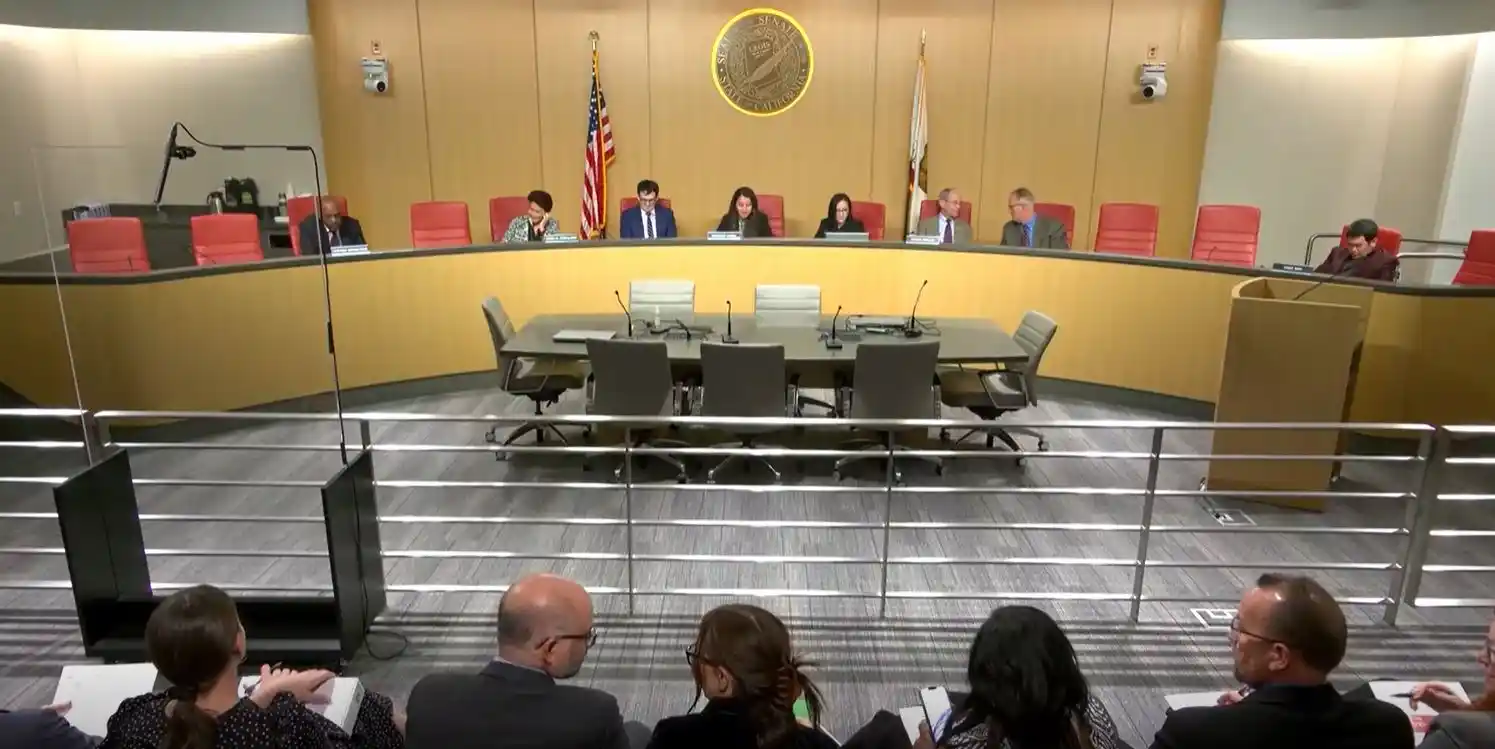A rider bill that recently passed in the California legislature suggests a stalled regulatory overhaul with big implications for cryptocurrency is once again in motion.
Close followers of the BitAML blog will remember an entry from earlier this year which described a proposed shift in the way the state of California performs oversight of its financial sector.
Essentially, California had passed an assembly bill that was part of Governor Newsom’s plan to revamp the state’s Department of Business Oversight.
We predicted that a few line-items in this bill, as well as a rebrand of the DBO which accompanied increased funding and new responsibilities, together suggested that this minor story about a state’s budget allocation would actually have massive implications for the cryptocurrency sector.
Though we later added an update to the article to report that these plans were ultimately put on hold, a new bill essentially puts these plans back in motion.
Once again, cryptocurrency regulation is likely on the horizon for California, especially as we enter 2021.
We explain the bill and its possible implications for crypto below.
California’s initial attempt at establishing a tougher crypto regulator earlier this year
Back in January, a minor story reported in the Sacramento Business Journal detailed California Governor Gavin Newsom’s budget proposal which, among other things, would significantly increase the scope of DBO.
Specifically, the DBO would be rebranded as the Department of Financial Protection and Innovation, and receive millions more in funding. This would allow the department to expand in the coming years to address a wider mandate in consumer financial protection.
We predicted that the department’s rebrand, increased oversight capabilities, and additional funding, set the table for a substantial regulatory apparatus with major implications for cryptocurrency businesses headquartered and operating in the state.
As the DBO puts it, the restructuring allows the department to “extend state oversight to important financial-services providers not currently subject to state supervision,” which, while not named directly, implicitly applies to innovative and nascent financial products, like cryptocurrency.
Then, the pandemic hit.
As the initial months passed and it became clear that COVID-19 would be a longer-term problem for the states, California quietly put its plans for the DBO on hold in order to focus its resources on fighting the pandemic.
So, what changed?
A new ‘rider’ bill brings those plans back into play
Meet AB 1864.
Passed August 31 by the California legislature, this rider bill largely appears to be the same (ot at least substantially similar, with minor changes) framework as the budget plan floated earlier this year.
That is, the bill would revamp the DBO into the planned (but stalled) Department of Financial Protection and Innovation, with a mandate that includes requirements for financial innovations that aren’t currently regulated.
While that could refer to any number of nascent technologies, it certainly wouldn’t leave cryptocurrency out.
All that’s left is for Gavin Newsom to sign it by September 30 and it becomes law, which he is expected to do (the DBO rebrand was his initial pre-pandemic plan). Once signed, the bill will take effect on January 1, 2021.
What this means for crypto businesses in California
Again, cryptocurrency is not specifically named within the bill, nor was it specifically named in the previous budget proposal from earlier in the year.
The story here is, as it was in January, the transformation of the Department of Business Oversight into a broader consumer financial protection organ — one that is empowered to regulate markets that are currently un- or under-regulated.
Cryptocurrency falls squarely under that purview.
The new Department should be expected to use rulemaking to issue guidelines around businesses including cryptocurrency money transmitters.
We have long held the position that so-called “no action” status within states that do not regulate cryptocurrency will not last forever.
It is not, and shouldn’t be, part of an effective long-term compliance strategy.
Keeping track of state regulatory guidelines can be difficult. These guidelines are often handed down without warning, so keeping an eye on and checking in frequently with state regulatory groups like California’s DBO is essential to staying abreast of regulatory updates.
The guidelines themselves may also be opaque. Don’t assume that just because “cryptocurrency” isn’t specifically named within guidance that a new rule doesn’t apply to a cryptocurrency business.
While regulators do sometimes issue guidance specifically for cryptocurrency companies (often, but not always, using the term “virtual currency”), there may be instances where a rule will simply be said to apply to “money transmitters”, or something else.
The point is, it is critically important for businesses to establish relationships with their state regulators.
If you’re a crypto business owner in California and either secured a “no action” letter a year or more ago and haven’t touched base since, or worse, you’ve never been in contact with the DBO, the time to start making a connection is now.
As 2021 kicks off and this newly-reformed department begins exercising its new responsibilities, rules that apply to crypto could be coming sooner rather than later.
Key takeaways for crypto businesses in California
The most important thing to do today is to make sure that your AML compliance is up-to-date and as bulletproof as possible.
Regulators work at their own pace, but with this bill expected to become law by the end of this month and go into full effect in January, we wouldn’t be surprised to see some initial guidelines that would have an impact on cryptocurrency, even if it’s not specifically named.
You can reach out to BitAML today for a free consult. We can advise on how to establish relationships with regulators so that you’re best-positioned to become aware of and implement regulatory updates as they are handed down.
We can also review your AML compliance program to make sure that your institutional compliance is running smoothly according to emerging compliance best practices.


